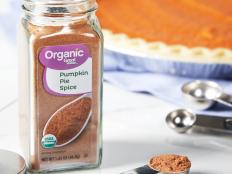1 / 8
Photo: Lisa Thornberg ©
Get a Head Start
Just like wrapping paper and tree lights, holiday cooking staples such as sugar, flour and canned pie filling tend to be deeply discounted after the holiday shopping season. Other standbys, including cooking oil and nuts, go on sale throughout the year. If you’ve ever been tempted to stock up on some of these seldom-used holiday must-haves, read on for our definitive guide to how early you can safely shop for some of the most commonly used items, and find out how to store them properly to ensure they’ll make it to your next holiday feast.
Photo: Lisa Thornberg/iStock









































